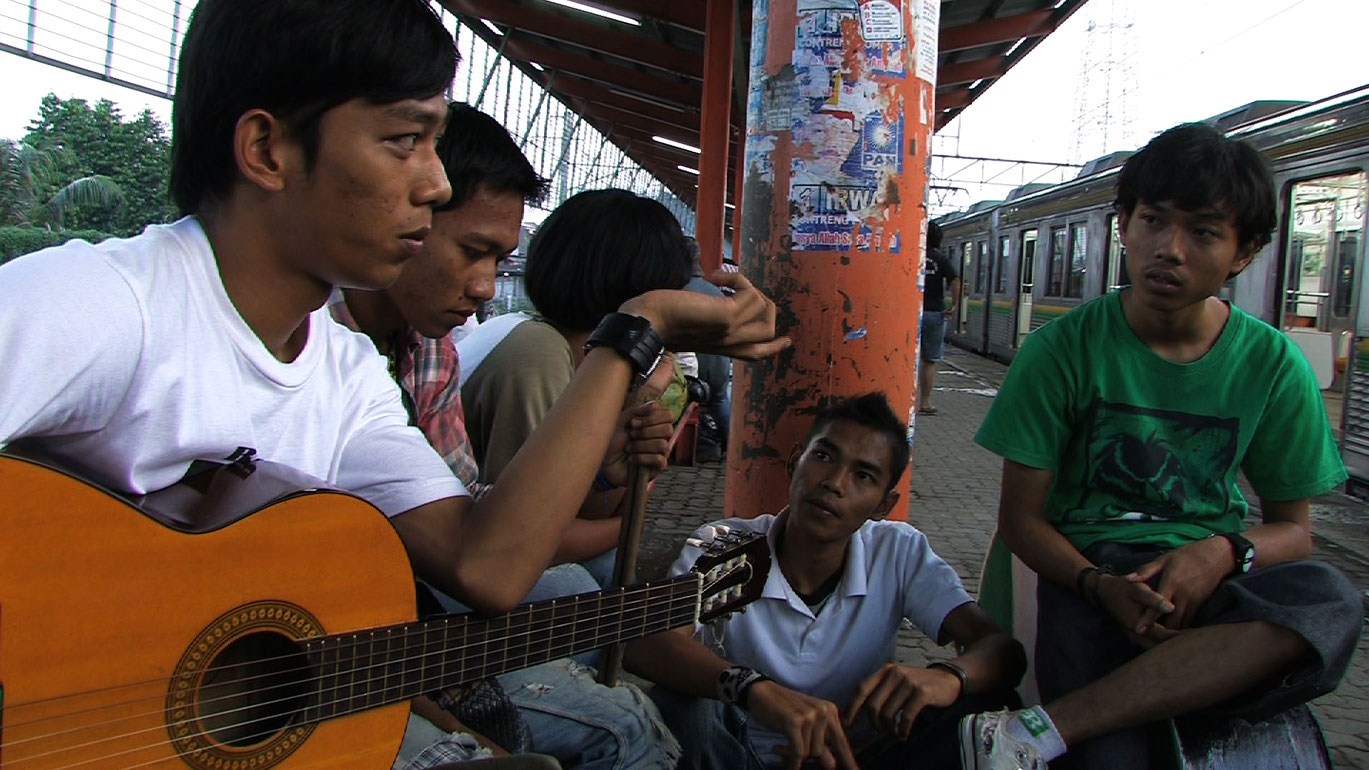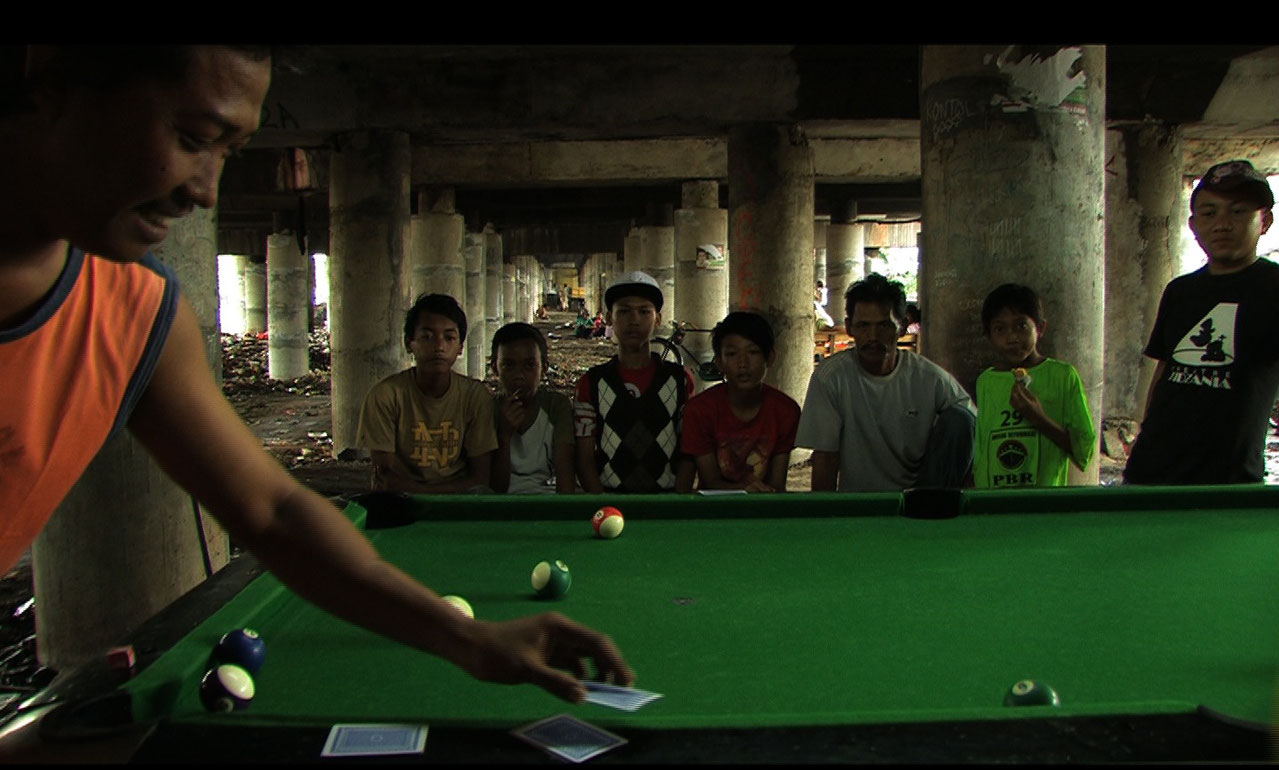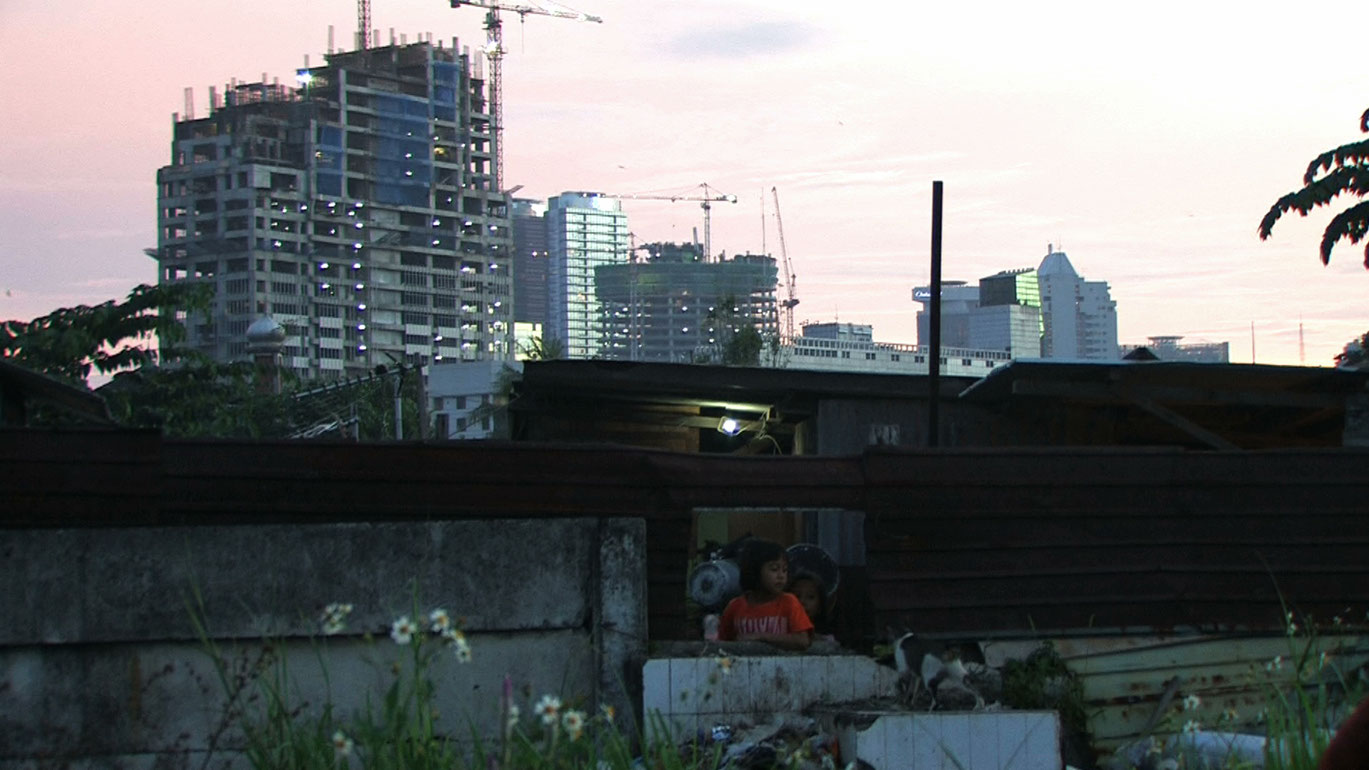Jakarta Disorder
Jakarta Disorder
The list of demands includes five items as simple as they are basic: work, a home, education, health insurance and formal recognition of the informal economy. Wardah Hafidz, coordinator at the Urban Poor Consortium (UPC) in Jakarta, puts them on paper. An election is about to take place. The Republic of Indonesia’s new president will be chosen democratically, for only the second time in the country’s long history. The five items are the subject matter of a contract which will be concluded between the poor and the candidate who promises to provide them. In return he will receive votes.
These issues are matters of democratic inclusion and exclusion that Ascan Breuer’s Jakarta Disorder is built around. They crystallize in a smoldering conflict involving space: In Jakarta poor residents live in squatter settlements known as kampungs that sprang up on unzoned areas in the course of the city’s rapid growth. As no one has legal claims on the land, these neighborhoods are supposed to be cleared to make way for large-scale development projects, while social housing built by the city government is too expensive for the kampung residents.
In the end, just how democratic a country’s life is, and this is the film’s powerful thesis, is shown by the way space is divided up. The chaos portrayed in Jakarta Disorder refers not only to the all too obvious contrast between squatter settlements and planned urban spaces, but also the circumstance that the city’s poorest residents are excluded from the city’s order.
Vrääth Öhner (Translation: Steve Wilder)
Jakarta Disorder
2009 - 2011
87 min
Documentary
Indonesian Malay
German, English



